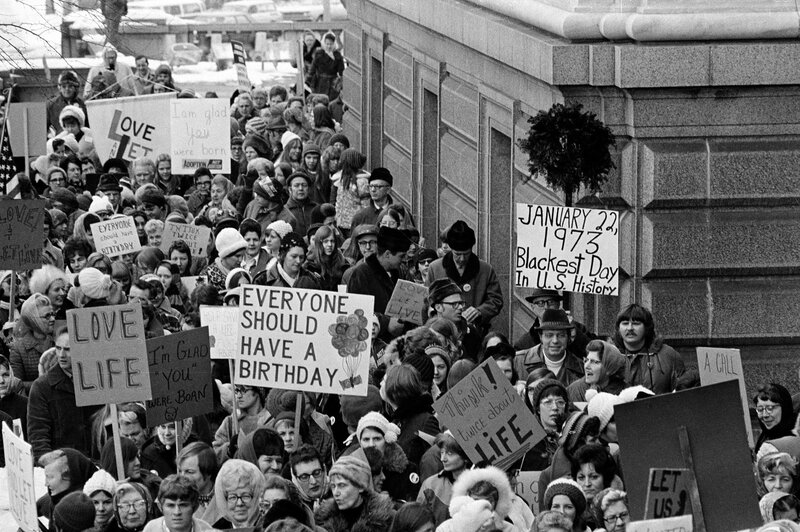Evangelicals and Abortion

Since this is not my area of research, I have generally followed the typical line, developed by many historians, that evangelicals really didn’t care about abortion when Roe was decided in 1973. It was part of a larger conservative project to politicize evangelicals and connect them with Catholics and the Republican Party led by people such as Jerry Falwell and Pat Buchanan. This has become a pretty standard narrative. But it is worth noting that newer work is pushing back on this narrative and it’s worth highlighting this piece here by two historians:
As state legislatures across the country contemplated legalizing abortion in the mid-1960s — buoyed by support from members of the medical and legal communities, as well as certain more liberal religious groups and, in particular, from the growing women’s liberation movement — evangelical antiabortion voices also emerged in the debate. At the time, there was growing awareness, but also a lot of confusion and ambivalence about abortion among these Christians. An article in a 1967 issue of the evangelical magazine Eternity captured this shifting terrain. It noted that the Bible was “strangely silent” on the question of whether the “unborn fetus” — not, tellingly, the “unborn child” — was a “living person with all the rights of life.” To combat that silence, a smattering of evangelical ministers began participating in Catholic-led “Right to Life Sundays.”
But a real turning point occurred when a statewide referendum on abortion took place in Michigan in 1972. Catholics there led the charge to oppose legalizing abortion. Crucially, they did so in a loose coalition with evangelical denominations, including Missouri Synod Lutherans, Dutch Reformed churches and Southern Baptist Convention churches. These groups managed to get 60 percent of voting Michiganders to oppose abortion law reform by emphasizing that abortion was murder. The campaign codified a visual iconography that is now rote, with mutilated fetuses and endangered White babies at its center. The victory also marked the beginning of an important political coalition in the making between evangelicals and Catholics who opposed abortion.
This type of religious cooperation was now possible because the meaning of abortion had changed for many evangelicals. Initially, most states proposed legalizing abortion only in “extreme cases”: to save the life of the expectant woman and in cases of rape, incest and fetal deformity. The Southern Baptist Convention passed a resolution in 1971 calling on Southern Baptists to “work for legislation that will allow the possibility of abortion under such conditions.”
Yet, in the wake of the 1973 Roe v. Wade decision, which (like the state of New York before it) allowed women to elect to have a legal abortion for any reason through the second trimester of pregnancy — before the point at which the fetus could viably live outside the mother’s body — evangelicals came to see abortion differently. A statement from the National Association of Evangelicals immediately responding to Roe lamented that the decision “made it legal to terminate a pregnancy for no other reason than personal convenience or sociological considerations.” That idea grew in evangelical circles as the number of legal abortions increased soon after. By 1975, 3.5 million women, or 1 in 14 women of reproductive age, had had an abortion.
That same year, a prominent group of Protestants, including J.A.O. Preus II, president of the Lutheran Church-Missouri Synod; Harold Lindsell, the editor of Christianity Today; and Ruth Graham, wife of the Rev. Billy Graham, founded the Christian Action Council to remind “non-Roman Catholic Christians that virtually all Christians have been against abortion from the beginning and for the protection of human life.” Quickly, evangelical denominations and institutions adopted across-the-board opposition to abortion.
These high-profile evangelical thinkers dovetailed with a groundswell of antiabortion sentiments from grass-roots activists. Evangelical women entered the political arena by joining state-level campaigns against the Equal Rights Amendment. The anti-ERA movement was a theological and political melting pot, bringing together Catholic anti-feminist leaders like Phyllis Schlafly with evangelicals across the country to oppose a range of perceived feminist threats to the traditional nuclear family.
This doesn’t completely erase that previous narrative of course. But it does seem to be more complicated than is usually portrayed.


